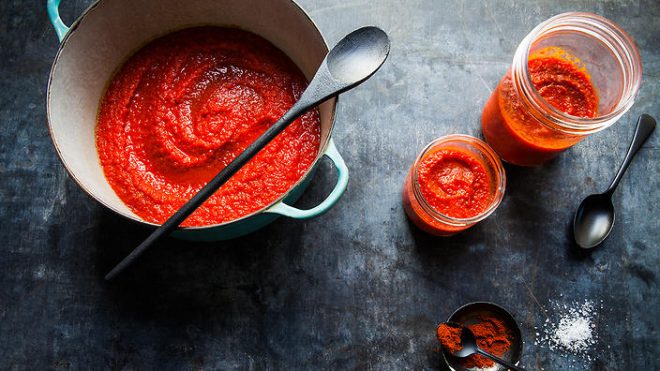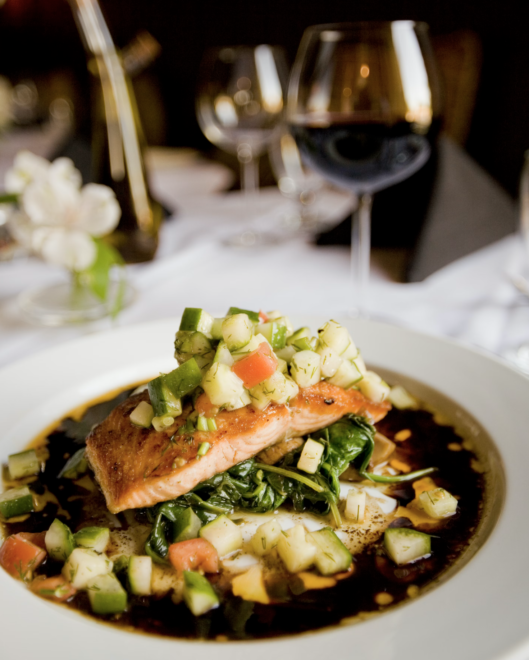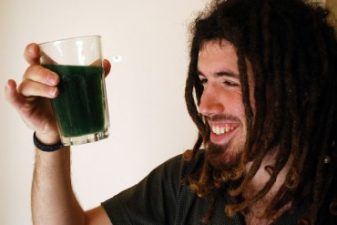A diet of Turkish salads can protect you from the sun, within.
We all want that “hot” summer glow that comes from a day at the beach, but taking in the rays can have long-term implications for our health.
Now in a study recently published in Nutrition Reviews, Dr. Niva Shapira from Tel Aviv University has shown that a diet rich in antioxidants and omega-3 fatty acids, like the diet eaten in Mediterranean regions where melanoma rates are extremely low, can help protect us from skin cancer.
The sun’s rays damage both the skin and the immune system by penetrating the skin and causing photo-oxidation, she says, affecting both the cells themselves and the body’s ability to repair any damage. Her prescription is to “go Greek” with foods such as olive oil, fish, yogurt and colorful fruits and vegetables to fight the oxidizing effect of the sun, as well as regular applications of sunscreen and appropriate body coverings such as hats, beach coverups, and other sportswear.
“My theory was that if you prepared the body with sufficient and relevant antioxidants, damage could be reduced,” she says.
For a study at the Baltic Sea, Dr. Shapira and Prof. Bodo Kuklinski of Rostock University in the US organized two groups. One group was provided a drink high in antioxidants, while the other enjoyed beverages such as sodas. Those who hydrated with the antioxidant-rich drink had fifty percent fewer oxidation products (i.e. MDA) in their blood at the end of the two-week period, which included five to six hours of exposure to the sun daily.

Turkish salads are full of lycopenes
Further studies proved that these antioxidants, especially carotenoids ― fruit and vegetable pigments like red from tomatoes and watermelons (see recipes) and orange from carrots and pumpkins that accumulate in the skin where they serve as a first line of protection ― had delayed the phenomenon of skin erythema, which indicates the initiation of tissue and DNA damage that can lead to skin cancer.
This information is invaluable, especially in light of climate change, notes Dr. Shapira. As temperature and humidity get stronger, which aggravates the damaging effect of solar UV rays, it is increasingly difficult for sunscreen alone to protect effectively.
So while covering up, slathering on the sunscreen, and avoiding the sun during peak hours are still important to prevent a burn, consider dietary changes too, to promote skin health.
Go fish with a glass of red

Salmon is paired with red wine
It might be tempting to load up on dietary supplements instead of changing the diet, but according to Dr. Shapira, supplements are simply not as effective. Foods provide nutrient “synergy,” she says. “In foods, many vitamins and various antioxidants and bioactive ingredients work to support one another and the body’s natural protective mechanisms. Synergies between the nutrients in your food, which make a significant contribution to health, may contrast with the relative isolation of a vitamin supplement.”
It’s not necessary to move to Greece, Israel or Turkey to get the benefit of the diet. Most of the appropriate foods are stocked in American and European grocery stores. Olive oil, fresh fish, fruits and vegetables, red wine in moderation, whole grains, beans and lots of water should be at the top of the shopping list, Dr. Shapira advises.
And there are some foods to avoid, she points out.
Go light on red meat, processed foods, and alcohol (red wine is preferable), and be wary of foods that contain the photosensitizing compound psoralen, such as parsley, celery, dill, cilantro and figs.
More sun-safe measures to take:
Make Your Own Organic Sunscreen
Ingestible Sunscreen by LycoRed’s Based on Tomatoes So You Don’t Become One
Chemicals and Your Baby’s Skin: Ecomum at the Pharmacy
Israel Cleans Up Its Act and Recycles Its Beach Waste





Comments are closed.